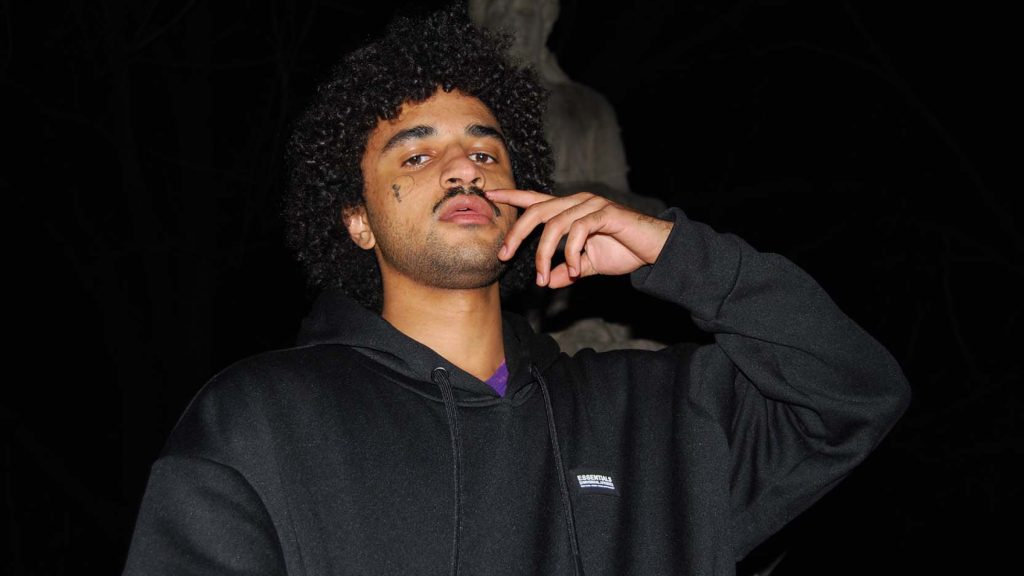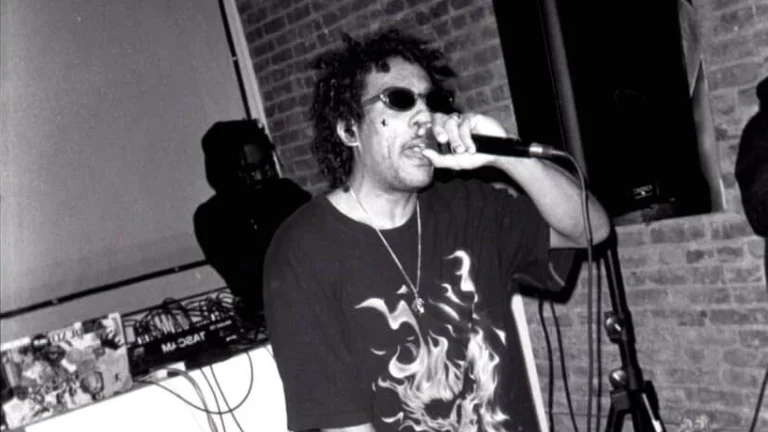If you’ve ever enjoyed Milosh or his alternate moniker Rhye, you’ll resonate with the lush rhythmic falsetto of Ian Mugerwa aka Dawuna. The experimental electronic sounds of this vocal-based artist from Brooklyn are on glorious display on Southside Bottoms. This 5-track album is a delicate mix of soprano songs for the soul. According to his Bandcamp page, this is a “concept album about the characters and times that occupied Dawuna’s life years ago in Southside Richmond.” Born in Maryland, Mugerwa had to fend off the double whammy of racist neighbors and traumatic relationships during his salad days. Along with being raised Protestant, this seems to have leaked into his music, particularly the latter three songs on this compilation. The tunes lead the listener through the artist’s younger years, navigating heartbreak and bigotry using the superficial comforts of sex and humor, before ultimately discovering his own sense of peace and fulfillment.
“Bottom Energy” is the first track on the album, and it crescendos like a distant storm, daunting to the eye yet strangely soothing when experienced through the comfort of closed doors. A solid, straight beat usually buoys Dawuna’s tunes, overlaid with percussive samples of everything from glass tinkles to pencils on a wooden cup. It works in such a way that there’s not much need for any kind of overbearing guitar or other melodic instrument. On this particular track, the fuzzy, kalimba-like hits blend with the minimal percussion to craft a lo-fi soundscape that’s both surprisingly clear and groovy as well. With vocals coated in a gossamer veil, he sings, “Hurt me, so I forget,”—perhaps referring to a relationship long past its due date. A distant synth carries the key changes and harmonic alterations of the song.
The D’Angelo-like interplay of shimmery vocal echoes is a recurring motif in Dawuna’s music and underscores the power of the voice. He’s adept at molding his Curtis Mayfield-like voice to more contemporary sounds but pays considerable homage to the source material. For instance, the vocals on the first track echo Mayfield’s “The Makings of You,” but Dawuna swaps out traditional instrumentation for an electronic, sample-based sound that still preserves the essence of the groove. Layered with sounds taken from everyday life and smoothed out with an R&B twang, he’s utilized his crystalline timbre in making a sound that’s truly his own. Case in point, “Strawberries” starts with the rifling of a few pages and a xylophone. The rush of traffic builds ambience, as Dawuna’s two-part harmonies float along a strong current of increasingly higher registers. He changes things up halfway through, with more of a rap-like delivery and an afrobeat-style clap groove. There’s a hint of Sylvan Esso during this second, especially with the kinds of samples being triggered: quantized xylos, rhythmic snaps, and vocal loops.
The samples are more bass-heavy on “Prayer,” and so is the vocal delivery. It’s shifted from a pentatonic-based structure of earlier songs to something more commercial—in a very vague sense of the term. For instance, while the earlier songs had a freewheeling essence, keeping you guessing where the tune would go next, this track follows a more traditional 4-chord pattern and showcases stronger, less delicate singing. There’s an interplay between the vocals that comes in at random intervals, pulsing alongside the beat to create a song that’s sexy and wistful in equal measure.
The final track on the album, “Heaven,” is more of an invocation for something ethereal, with Dawuna repeating “You’ve been,” on a loop, as a meditative and barebones beat plays on the backfoot. Gentle whispers float by, sometimes menacing, other times comforting. This is perhaps the most ruminant of the album’s songs, with an introspective layer taking the listener along for a journey through the artist’s headspace. It’s a psychotropic kayak ride through gentle waves and slappy rapids of both happy and painful memories. The crux seems to be that these experiences made him the person—scratch that—the artist he is today. Concluding the project with this song could symbolize finally being at peace, having shed the tribulations of being othered and ostracized for the color of his skin. Leaving behind the city and finding his sound might be his version of heaven. In any case, you won’t realize you’ve been sitting and contemplating the nature of existence for a few minutes after the song has worked its magic.
At certain points, it’s evident that Dawuna produced and mixed the album almost entirely on his own, especially when some organic and less polished sounds leak in. This adds personality to a lot of the album, as it’s less clinically refined than what’s produced in a professional studio. Being self-produced, there’s a significant amount of presence and thoughtfulness providing gravitas when needed, with only the main aspects of the melody standing out. Southside Bottoms is an immersive album that winds through several differing genres—from R&B to Electronica—with ease, while riding the crest of vocal ability and avoiding the flotsam and jetsam of conventionality.





